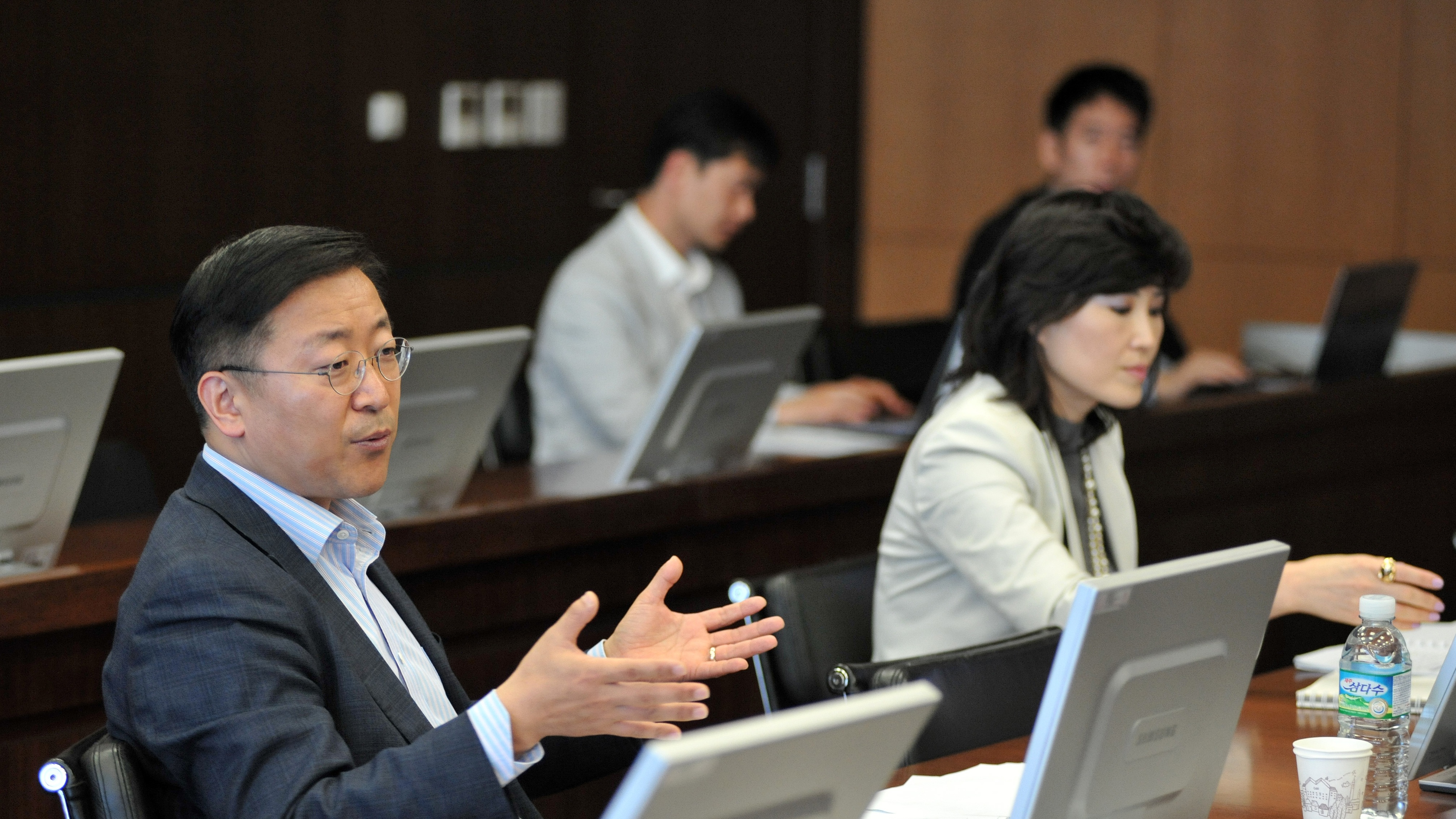Half of Samsung's R&D workforce works exclusively on software
That proportion is expected to rise

Samsung wants to move way from its hardware roots and embrace software as soon as possible. So said the vice chairman of its electronics division and CEO, Kwon Oh-hyun, during the company's analyst day in Seoul.
The 61-year old, whose background is in the chip business, revealed that half of Samsung's employees working in the R&D division are currently working on software solutions and that number is likely to rise significantly.
A "ball" analogy
Kwon compared Samsung's current status to Boston Red Sox's recent World Series championship in baseball. The team, he said, led major leagues in batting but not in pitching performance and somehow managed to win the world championship.
His conclusion being that nobody can be strong in both before adding "even though we're doing the software business, we're not as good as we are in hardware".
Samsung has more than 40 R&D labs and so-called global research facilities scattered across the world including one in Staines just outside London which focuses on telecoms and audio visual.
The company's research and development head count stood at 50,000 employees as of 2011, nearly one in seven of its employees back then, that last number rose to 425,000 by the end of the chaebol's 2012 financial year.
Tizen's the future?
Samsung is quietly betting on Tizen, a multi-purpose operating system, that replaced MeeGo and its own Bada OS, to fulfil part of its software ambitions.
Are you a pro? Subscribe to our newsletter
Sign up to the TechRadar Pro newsletter to get all the top news, opinion, features and guidance your business needs to succeed!
The company still relies on Google's Android and Microsoft's Windows operating systems to power most of its electronic products but some recent changes in the market, most notably Google's acquisition of Motorola and Nokia's purchase by Microsoft, may have finally convinced Samsung that being in control of one's software is the way forward.
- In the meantime, check Samsung's first attempt at producing a Tizen-based smartphone